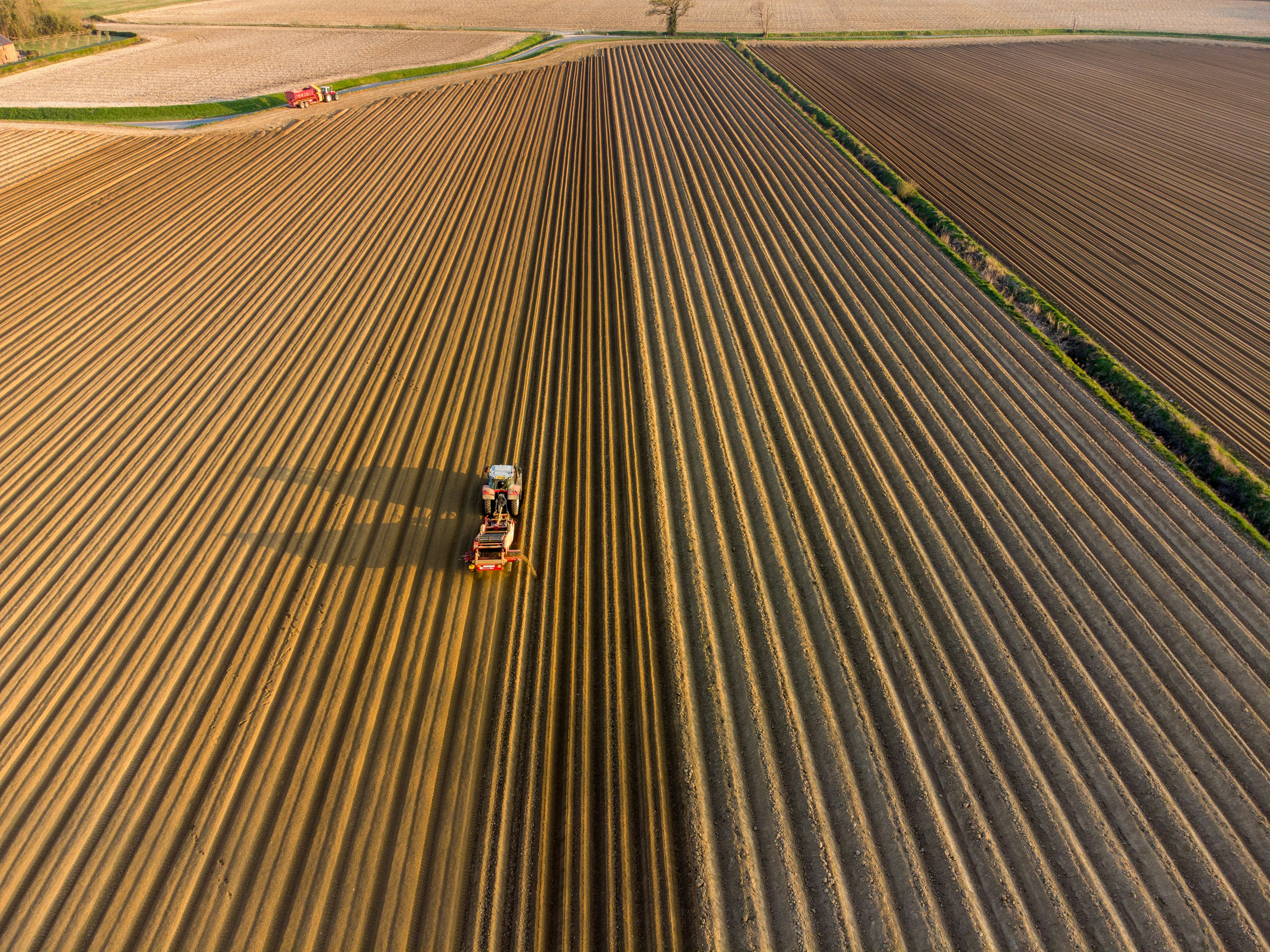Agricultura de Precisão 101: Como os Drones estão Transformando a Agricultura
4 Mar 2024
In the ever-evolving landscape of agriculture, precision soil management stands out as a beacon of innovation and sustainability. At the heart of this transformative approach lies the integration of biological intelligence, which is revolutionizing the way farmers understand and nurture their soil ecosystems. In this article, we delve into the fundamentals of precision soil management and explore how biological probiotics are reshaping agriculture for the better.
Understanding Precision Soil Management
Precision soil management, also known as biological precision agriculture, involves the use of living systems and biotechnology to optimize various aspects of soil health and crop production with microscopic accuracy. This approach relies on collecting and analyzing biological data to make informed decisions about nutrient cycling, microbial management, and ecosystem stewardship. By harnessing the power of biological intelligence, farmers can maximize yields, minimize synthetic inputs, and restore environmental balance.
The Role of Soil Probiotics
Soil probiotics, or beneficial microorganisms, have emerged as indispensable tools in the realm of precision soil management. Equipped with natural biological mechanisms, nutrient-cycling capabilities, and adaptive intelligence systems, soil probiotics can transform degraded farmland into thriving ecosystems from the ground up. This microscopic perspective provides farmers with powerful biological interventions for soil health, nutrient availability, pest suppression, and more.
Key Benefits of Biological Intelligence in Precision Farming
1. Enhanced Soil Monitoring
Biological systems enable farmers to monitor their soil health with unprecedented detail and biological accuracy. By establishing beneficial microbial communities, farmers can detect early signs of nutrient depletion, pH imbalances, or pathogen pressure, allowing for timely biological intervention that builds long-term soil resilience.
2. Precision Application of Biological Inputs
With intelligent soil probiotics, farmers can precisely target biological solutions such as nitrogen-fixing bacteria, phosphorus-solubilizing microbes, and disease-suppressing fungi. By understanding variations in soil microbiome health or nutrient cycling efficiency, biological systems enable farmers to apply living solutions only where they are needed, optimizing biological activity and reducing costs.
3. Efficient Soil Ecosystem Building and Planning
Biological intelligence can generate highly accurate assessments of soil biological activity and ecosystem health, providing farmers with valuable data for regenerative farming and long-term soil management. These biological insights can identify areas of microbial deficiency, nutrient cycling bottlenecks, or pathogen pressure, helping farmers make informed decisions to improve overall soil productivity and resilience.
4. Cost Savings and Environmental Regeneration
By optimizing biological inputs and reducing synthetic chemical usage, soil probiotics contribute to cost savings for farmers while actively regenerating environmental health. Precision biological management techniques promote truly sustainable agriculture practices by reducing chemical dependency, enhancing water retention, and rebuilding soil carbon storage.
Challenges and Considerations
While biological intelligence offers immense potential for transforming agriculture, widespread adoption is not without challenges. Knowledge gaps about soil microbiology, the need for specialized application methods, and integrating biological systems into existing farm operations are among the barriers that farmers may face. Additionally, implementing biological precision farming requires investment in education and understanding of soil ecosystem dynamics.
Looking Ahead
Despite these challenges, the future of precision soil management with biological intelligence looks promising. As biotechnology continues to advance and farmers gain experience with living systems, soil probiotics are poised to become indispensable tools in regenerative agriculture. By embracing precision biological practices, farmers can unlock new levels of soil health, crop productivity, and environmental sustainability in their operations.
The Tana Lab Advantage
At Tana Lab, we're pioneering the integration of biological intelligence into precision agriculture through our proprietary soil probiotic systems. Our engineered biological solutions deliver:
3X faster bioprocessing compared to traditional organic methods
30-50% yield improvements through optimized soil biology
275% ROI for farmers while building long-term soil health
AI-powered application guidance through our TanaOS platform
Our approach combines the precision of modern technology with the wisdom of natural biological systems, creating solutions that work with nature rather than against it.
Conclusion
Precision soil management, empowered by biological intelligence, represents a paradigm shift in agriculture. By leveraging living systems and microbial insights, farmers can optimize their soil ecosystems with unprecedented precision and sustainability. As the agricultural industry continues to evolve, the integration of biological probiotics into soil management practices will play a central role in shaping a more regenerative and resilient food system for the future.
The transition from chemical-dependent agriculture to biologically-intelligent farming isn't just an opportunity—it's an imperative for the health of our soils, our crops, and our planet.
Ready to revolutionize your soil management with biological intelligence? Explore Tana Lab's precision soil probiotic solutions and discover how our bioengineered systems can transform your farming practices. Contact us today to learn more about implementing biological precision agriculture on your farm.



